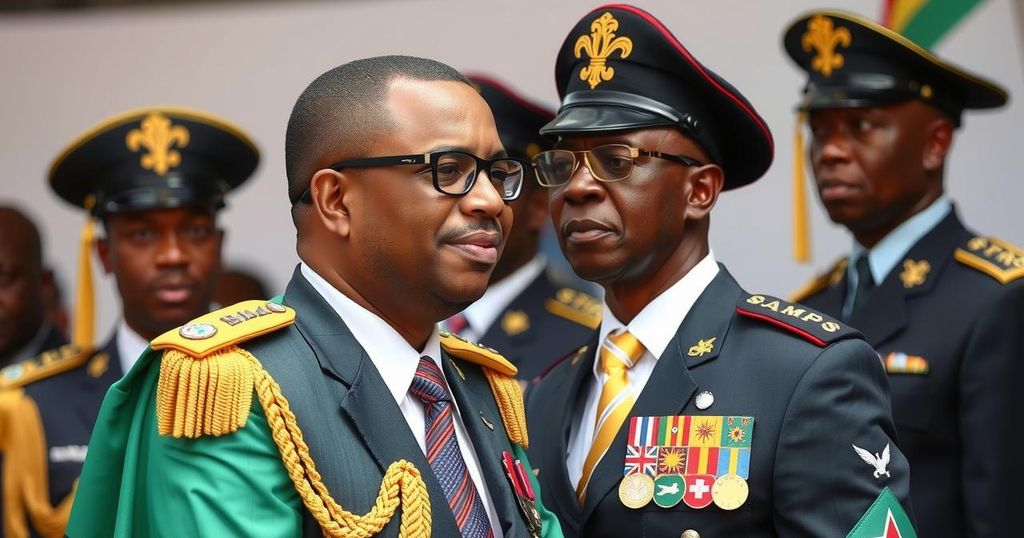Daniel Chapo will be inaugurated as Mozambique’s president amidst protests and unrest following disputed elections. Opposition leader Venancio Mondlane has vowed to disrupt government operations due to alleged electoral fraud, as violent protests have resulted in over 300 deaths. Chapo may face significant challenges in his tenure as he calls for national unity and stability.
On Wednesday, Mozambique will witness the inauguration of President-elect Daniel Chapo, following a period of intense political unrest stemming from contentious electoral outcomes. Chapo’s main opposition, Venancio Mondlane, has declared intentions to mobilize mass protests against what he deems fraudulent results favoring the ruling Frelimo party. Recent reports indicate that police brutality during demonstrations has resulted in over 300 fatalities, as civil society groups draw attention to the alarming escalation of violence in the nation.
Mondlane, who commands significant support among younger citizens, publicly accused Chapo’s administration of suppressing peace and freedom. In light of the serious allegations regarding mass electoral fraud during the October elections, Mondlane remarked, “This regime does not want peace” and committed to escalating protests until the government is held accountable. He has called for a general strike leading up to the inauguration, with intentions to disrupt governance for the duration of Chapo’s term.
As Chapo prepares to take his oath of office, he emphasized the need for stability and cooperation within the parliament, urging citizens to unite for national development. This inauguration is being scrutinized internationally, with various observers documenting irregularities during the election. Notably, several foreign dignitaries have opted to boycott the ceremony, which analysts interpret as a significant diplomatic statement regarding the election’s legitimacy.
In the lead-up to this decisive day, Mondlane’s activism has borne tragic consequences, with ongoing clashes between protesters and police forces resulting in numerous casualties. As tensions remain high, Chapo is expected to announce his cabinet, amidst calls for potential inclusivity to pacify critics, yet direct negotiations with Mondlane have not materialized as he has been excluded from initial dialogues between Frelimo and other political leaders.
The recent political climate in Mozambique is deeply influenced by the outcomes of the elections held on October 9, which were marked by widespread allegations of irregularities and manipulation. The Frelimo party has maintained a firm grip on the government since Mozambique’s independence in 1975, yet this election has sparked significant dissent from opposition leaders, particularly from Venancio Mondlane, who claims he secured a majority and has galvanized public protests in response to perceived injustices. The situation has escalated into violence, with law enforcement reportedly responding with lethal force against demonstrators, raising concerns among human rights organizations and the international community.
The inauguration of President-elect Daniel Chapo occurs against a backdrop of unrest and allegations of election fraud, significantly complicating his governance. The potential for widespread protests led by opposition figures like Venancio Mondlane poses challenges to stability in Mozambique. As the political landscape evolves, the government’s ability to address public grievances and demonstrate willingness for dialogue may determine whether tranquility returns to the nation or further unrest ensues.
Original Source: www.france24.com






